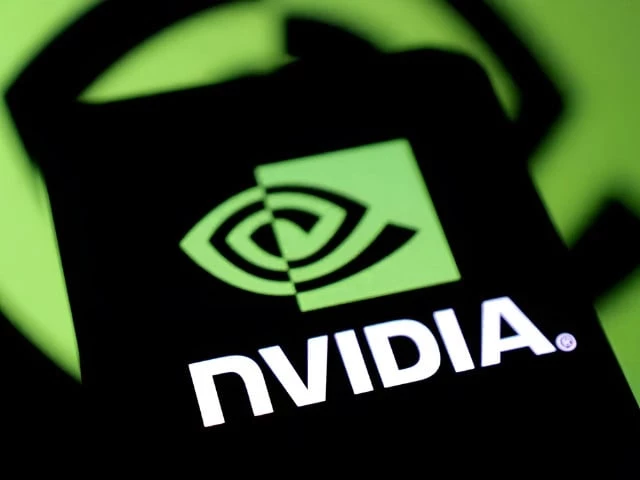Nvidia is developing a new artificial intelligence chip for China based on its latest Blackwell architecture that will be more powerful than the H20 model it is currently allowed to sell there, two people briefed on the matter said.
US President Donald Trump last week opened the door to the possibility of more advanced Nvidia chips being sold in China. But the sources noted U.S. regulatory approval is far from guaranteed amid deep-seated fears in Washington about giving China too much access to U.S. AI technology.
The new chip, tentatively known as the B30A, will use a single-die design likely to deliver half the raw computing power of the more sophisticated dual-die configuration in Nvidia’s flagship B300 accelerator card, the sources said.
A single-die design has all the main parts of an integrated circuit on one continuous piece of silicon rather than split across multiple dies.
The new chip would have high-bandwidth memory and Nvidia’s NVLink technology for fast data transmission between processors, features that are also in the H20, a chip based on the company’s older Hopper architecture.
The new chip’s specifications are not completely finalised but Nvidia hopes to deliver samples to Chinese clients for testing as early as next month, said the sources who were not authorised to speak to media and declined to be identified.
“We evaluate a variety of products for our roadmap, so that we can be prepared to compete to the extent that governments allow,” Nvidia said in a statement.
“Everything we offer is with the full approval of the applicable authorities and designed solely for beneficial commercial use.”
“Of course (CEO Jensen Huang) would like to sell a new chip to China,” US Commerce Secretary Howard Lutnick said when asked about the Reuters story in a CNBC interview, repeatedly praising Huang. “I’m sure he’s pitching the president all the time.”
“I’ve listened to him pitch the president, and the president listens to our great technology companies, and he’ll decide how he wants to play it. But the fact Jensen is pitching a new chip shouldn’t surprise anybody.”
The US Department of Commerce did not respond to a request for comment.






